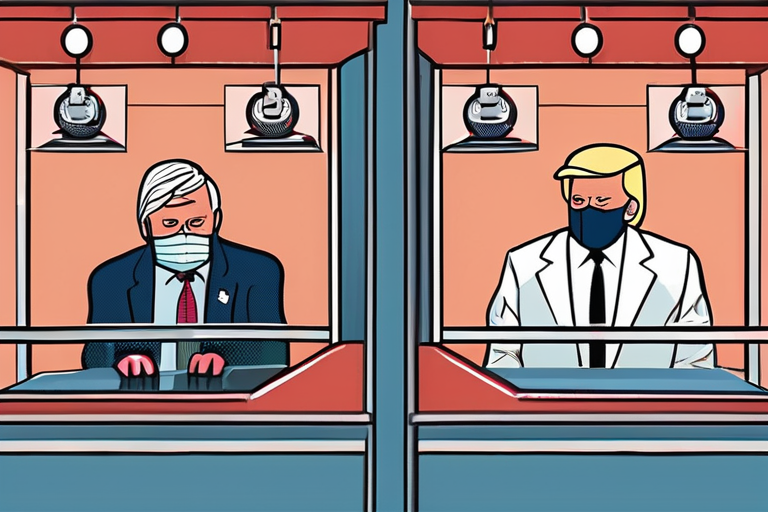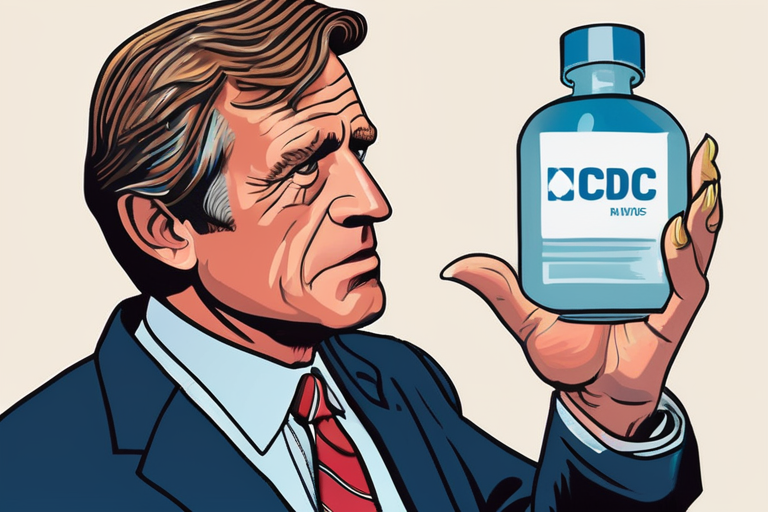As the Trump administration navigates the complex landscape of health policy, a high-stakes power struggle is unfolding behind the scenes. At the center of the tug of war is Health Secretary Robert F. Kennedy Jr., a vocal advocate for anti-vaccination views, and FDA Commissioner Marty Makary, who has been pushing back against the administration's increasingly erratic health agenda.
The latest development in this battle came in the form of a quietly made change to the Centers for Disease Control and Prevention's (CDC) website, which now suggests that there is no fixed scientific consensus on whether vaccines cause autism. The move has been met with dismay among career CDC staffers, who see it as a further erosion of evidence-based public health guidance under the Trump administration.
This shift is not an isolated incident, but rather a symptom of a larger power struggle within the administration. Kennedy, who has been a long-time advocate for anti-vaccination views, has been quietly building a coalition of like-minded officials within the administration. Meanwhile, Makary, a prominent voice within the administration, has been pushing back against the administration's increasingly erratic health agenda.
The power struggle between Kennedy and Makary has been brewing for months, with each side vying for control over the administration's health care agenda. The stakes are high, with the fate of the nation's public health hanging in the balance.
At the heart of the conflict is the issue of vaccine policy. Kennedy has been a vocal critic of vaccines, citing concerns about their safety and efficacy. In contrast, Makary has been a strong advocate for evidence-based public health guidance, pushing for the administration to rely on scientific consensus rather than anecdotal evidence.
The CDC's recent change to its website is a clear indication of the administration's willingness to prioritize ideology over evidence. The move has been met with widespread criticism from the scientific community, who see it as a further erosion of trust in the nation's public health institutions.
"This is a classic case of science being politicized," said Dr. Peter Hotez, a prominent vaccine expert and professor at Baylor College of Medicine. "The administration is prioritizing ideology over evidence, and it's having a devastating impact on public health."
The implications of this power struggle are far-reaching, with the nation's public health hanging in the balance. As the administration continues to navigate the complex landscape of health policy, it's clear that the stakes are high and the consequences of failure will be severe.
In the end, the outcome of this power struggle will depend on the ability of the administration to balance ideology with evidence. As the nation's public health hangs in the balance, one thing is clear: the fate of the nation's health care agenda will be decided in the coming weeks and months.
The Trump administration's handling of the vaccine tug of war has significant implications for the nation's public health. As the administration continues to navigate the complex landscape of health policy, it's essential to stay informed about the latest developments.
In the words of Dr. Hotez, "The administration's willingness to prioritize ideology over evidence is a recipe for disaster. We need to rely on science, not anecdotes, to guide our public health policy."
The nation's public health hangs in the balance, and the outcome of this power struggle will have far-reaching consequences. As the administration continues to navigate the complex landscape of health policy, one thing is clear: the fate of the nation's health care agenda will be decided in the coming weeks and months.

























Share & Engage Share
Share this article